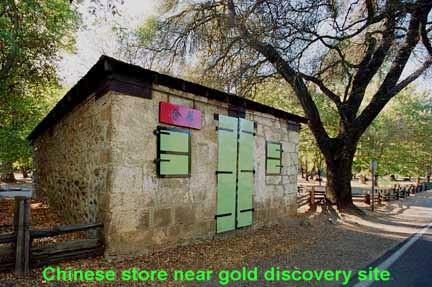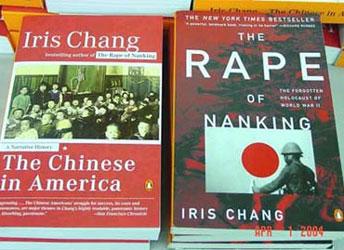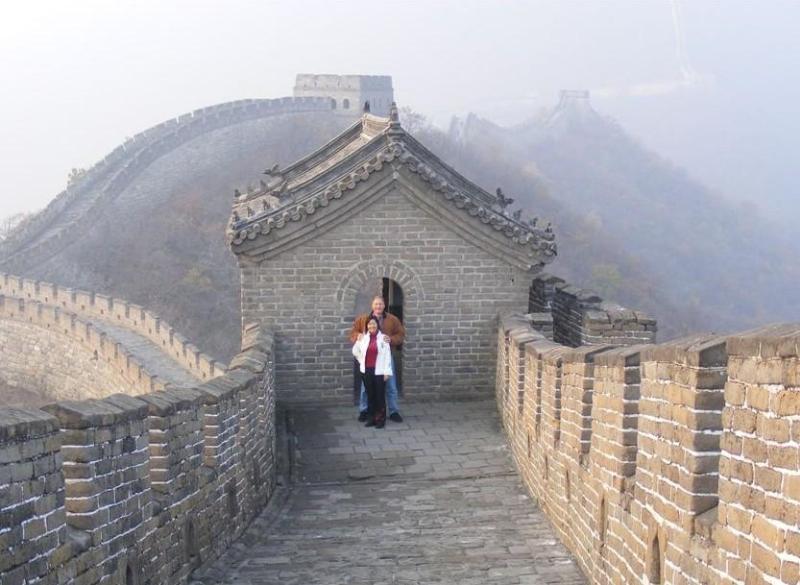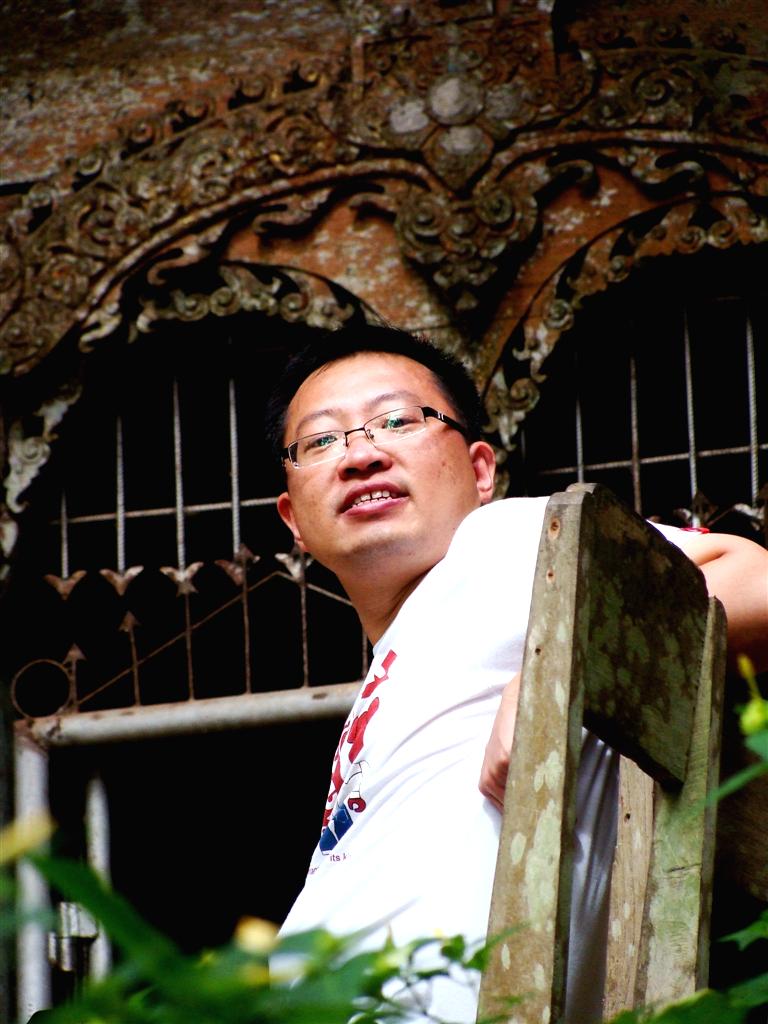| The History of Chinese People in Early California | |
|---|---|
| Apr 25, 2006 00:52 | |
 | The history of Chinese people in Early California: The earliest documented arrival of significant numbers of Chinese people in California, dates from the middle of the nineteenth century. Gold was discovered on the American River east of Sacramento, California early in 1848, very near the modern day city limits of Placerville. Word of the discovery was first disseminated by ships engaged in trade throughout the world. Among the first to learn of the new place of gold, were the people of Kwangtung Province (Guangdong). In 1848, law and tradition argued against travel to California, but a desire for quick riches was powerful motivation for a few hardy souls. These few soon sent back word of Gum Shan (Gold Mountain) and triggered a wave of Chinese immigrants. The first rough census of Chinese in California was initiated in 1852 when 25,000 were counted. The vast majority of them were from Kwangtung Province in southern China. The typical Chinese gold seeker was in his late teens or early twenties, male, single, and with limited education. His purpose was to return to China as soon as he had accumulated his wealth. He assiduously protected his traditional Chinese life style. Customs, clothing, language, food, and the traditional manner set him apart from his fellow miners. Understandably he sought the company of his countrymen and very quickly small Chinese settlements emerged in the mines, towns and cities. The largest and most important of these communities was San Francisco's Chinatown. Chinese Mutual Aid Societies sprang up and became an important part of the social structure in the city and beyond. Throughout my city today, are still many remnants and reminders of the contribution the Chinese made to the building of California, in its early days. These include, old buildings, monuments, memorials, sturdy rock walls that traverse many miles of countryside, and of course, the original road-bed for the rail line through the mighty Sierra Nevada Mountains, connecting, Sacramento with the east. Perhaps this emotional ‘connection’ from the past, is part of the reason why I love China, her people and culture, so very much.  |
| Apr 25, 2006 01:12 | |
 | Yes, I think members here can feel your passion for China, Roger. U are really 1 of the rare species from the west ! I think another joining your rank will be Kelvin. Hahaha !! Yes, the Chinese are everywhere - the 19th century was the age of massive migration to various nearby and far off countries that required cheap labour. Unfortunately, they were not well-treated in N.America. They were denied a great deal of freedom & normal privileges accorded to "foreign talents" ! They were not even allowed to marry local gals and cannot bring their Chinese women there (if I remember correctly). They were poorly treated - just a wee bit better than slaves. Fortunately, their contributions are now recognised & documented. |
| Apr 25, 2006 02:39 | |
 | The Chinese were another target of Californian racism. In 1848 there were said to be only 3 Chinese in California, but a year later there were 700. By 1850 the number had grown to 3000, increasing in 1852 to 10,000. First, they did not face any opposition from the Americans, since they did all the work the Americans refused to do for little money. Later on, the Americans feared being driven out by the Chinese who might be used to lower the wages. In meetings, many camps decided to expel the Chinese from the diggings. Where they were allowed to stay, they were forced to work on separate, exhausted soil that only allowed a return of one or two dollars per day per laborer. Since California courts did not allow the Chinese to testify, they organized their own district unions from 1851 onwards, not only to handle disputes but also to take responsibility for the care of the sick and burial of the dead. The main obstacle to the integration of the Chinese into the community of American miners was their wage labor which seemed to contradict the Californian ideology of free labor and was used to combine discrimination against the Chinese with agitation against the evils of capitalism. |
| Apr 25, 2006 02:55 | |
 | Since Westerners have limited access to knowledge about Asia and its inhabitants, Westerners have created this fantasy that projects Euroamerican desires and dread on the alien other. Thus, as Western nations began to carve up Asia into colonies, their own imperialist expansion was in part rationalized by the notion that a militarily powerful Asia posed a threat to "Christian civilization." In the United States, this fear increased with immigration in the late 1800s. Many Asians came to the United States in search of work. Their work ethic and willingness to work for lower wages incited fear against this cheap labor as economic instability. In addition, as more Asians decided to take up permanent residence in the United States, the fear of miscegenation appeared. In addition to these fears which appeared in the United States, fear was growing in China. In 1900, the Boxers rebelled against Christianity, killing Western missionaries as well as the Chinese Christian converts. Thus, the "yellow peril" as "a sea of Godless heathens who would turn on their Western 'protectors' to torture and kill them" was born in the United States.With this idea reinforced in both China and the West, the media took off on this theme creating cartoons, comic strips, and movies using this theme of the yellow peril. One of the most reactionary aspects of the yellow peril concept is the idea of sexual contact between the races. The two most common fantasies portrayed in film are the Asian female seducing the White male and the Asian male seducing the White female. |
| Apr 25, 2006 03:34 | |
 | I'd like to read this article,thanks,Roger! |
| Apr 25, 2006 03:49 | |
 | Iris Chang\'s third book, The Chinese in America, described the determination of Chinese immigrants to take their place in America. Because of her deep interest in human rights, she paid special attention to the many groundbreaking legal cases successfully brought by Chinese Americans against racist and exclusionary laws. Many of these victories remain on the books to this day.  |
| Apr 25, 2006 03:55 | |
 | I saw a bronze statue of Iris Chang when at the Nanjing War memorial Museum recently. |
| Apr 25, 2006 04:05 | |
 | How did it make you feel inside to see what those foreigners did to the Chinese women? |
| Apr 25, 2006 06:05 | |
 | Before visiting that Museum I was already very upset with them - from what is read/heard ! The visit reminded me of it. I know some people may not like what I said here but I just can't help it. When I visited Bejing 10 years ago, there used to be notices displayed at some of the attractions like Yue He Yuan, on the part played by the British & French soldiers in their destruction and lootings. It aroused in me strong emotions. That's why I always hope that China will be strong, strong, strong so that she won't get bullied ever again - by even much smaller countries. |
| Apr 25, 2006 06:53 | |
 | Such As Chinese People in Early California !!! |
| Apr 25, 2006 07:07 | |
 | Four days after what many Christians considered their holiest day, Easter, and celebrated the resurrection of Christ, President Bush met with Hu Jintao, President of Communist China, in the White House. The purpose of the meeting was billed as an attempt to settle \"trade differences\" between the US and China. Bush may have very well wheedled some minor trade concessions out of Hu, which would be piddling in terms of coming remotely close to correcting the gargantuan trade deficit we have with China. |
Page 1 of 3 < Previous Next > Page:
Post a Reply to: The History of Chinese People in Early California








 Copyright © 1998-2026 All rights reserved.
Copyright © 1998-2026 All rights reserved.